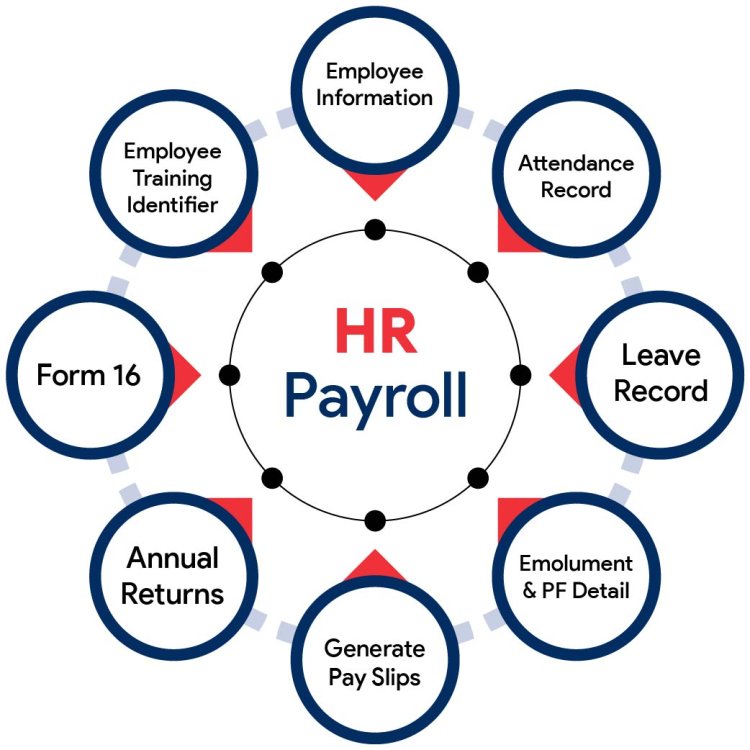Learn More About HR And Payroll Courses
HR and Payroll courses equip professionals with the knowledge and skills to manage human resources effectively and ensure accurate payroll processing.
Share this Post to earn Money ( Upto ₹100 per 1000 Views )

Introduction
HR and Payroll courses equip professionals with the knowledge and skills to manage human resources effectively and ensure accurate payroll processing. These courses cover key areas such as recruitment, compliance with labour laws, salary disbursement, and employee benefits management. Additionally, the HR and Payroll Courses offer training on modern HR systems and analytics, enabling professionals to streamline processes and make data-driven decisions. By learning these fundamentals, individuals can contribute to the efficient functioning of HR departments and overall business success.
What Is HR And Payroll?
HR (Human Resources) refers to the management of an organization’s workforce, focusing on hiring, training, employee relations, performance management, and compliance with labour laws. It ensures that employees are supported, motivated, and aligned with the company’s goals.
Payroll, on the other hand, deals with the compensation of employees. It involves calculating wages, salaries, taxes, and benefits, ensuring accurate and timely payments. Payroll also handles statutory deductions like taxes, insurance, and retirement contributions, while ensuring compliance with legal regulations. Together, HR and Payroll work to maintain employee satisfaction and organizational efficiency.
Things To Learn From HR And Payroll Courses
HR and Payroll courses offer valuable insights into the operational and strategic management of human resources and compensation processes in organizations.
Here's what you can learn:
1. HR Fundamentals
HR courses typically begin with the fundamentals of human resource management, which includes learning about employee recruitment, onboarding, retention, and termination. These courses also cover legal frameworks like labour laws, compliance with employment standards, and organizational policies. Understanding these basics helps HR professionals ensure that they manage the workforce effectively while aligning with organizational goals.
2. Payroll Management
Payroll courses focus on the accurate calculation and disbursement of employee salaries, wages, bonuses, and benefits. You'll learn how to handle payroll software, set up employee salary structures, and ensure deductions like taxes and insurance are applied correctly. Courses will also cover payroll regulations, such as tax filings and compliance with statutory requirements (e.g., Provident Fund and ESI in India).
3. HR Information Systems (HRIS)
HR and Payroll courses often include training on HRIS, which helps automate payroll, attendance, and performance evaluations. Familiarity with HRIS like SAP SuccessFactors, Oracle HCM, or ADP is crucial for modern HR management. These systems reduce manual tasks and improve efficiency by maintaining digital records and integrating HR processes.
4. Employee Benefits & Compensation
Another key aspect is understanding compensation structures, incentive plans, and benefits administration. This includes managing health insurance, retirement plans, paid leave, and performance bonuses. Proper compensation management is critical for employee satisfaction and retention.
5. Reporting & Analytics
These courses also emphasize HR analytics, which involves analysing employee data to identify trends and improve decision-making. Topics include turnover rates, productivity tracking, and cost management.
By mastering these areas from the HR Payroll Training in Delhi, HR and Payroll professionals can manage human capital effectively, ensuring that both employees and organizations thrive.
Conclusion
In summary, HR and Payroll courses provide essential skills in workforce management, payroll accuracy, HR technology, and employee benefits administration. Mastering these areas ensures efficient HR operations, legal compliance, and employee satisfaction, ultimately supporting organizational success and growth in today’s competitive business environment.















